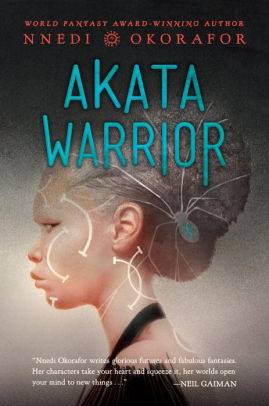Akata Warrior, the long awaited sequel to
is out tomorrow (Oct. 3rd)! I’m happy dance all over, I adore Nnedi Okorafor’s books, and I loved Akata Witch*. All the characters are wonderful, as is their bond of friendship and their often prickly relationship with their mentors. When Akata Witch ended, Sunny was left with a direct communication from her grandmother, Ozoemena, and both she and Orlu decided they weren’t quite ready for second level. It left me wanting, very much, to follow along with the four friends, and now I’ll be able to do so.
*Some highly unimaginative people have called this book the Nigerian version of Harry Potter, or somesuch idiocy. Frankly, I think that’s an insult to Ms. Okorafor, who has one of the most splendid imaginations, and weaves real history and beliefs seamlessly into her worlds, and they bring Nigerian culture into a beautiful blossom, one that would be familiar to many, and a grand learning experience for others, like myself. Akata Witch is brimming with sly humour, intelligence, and heart.

















